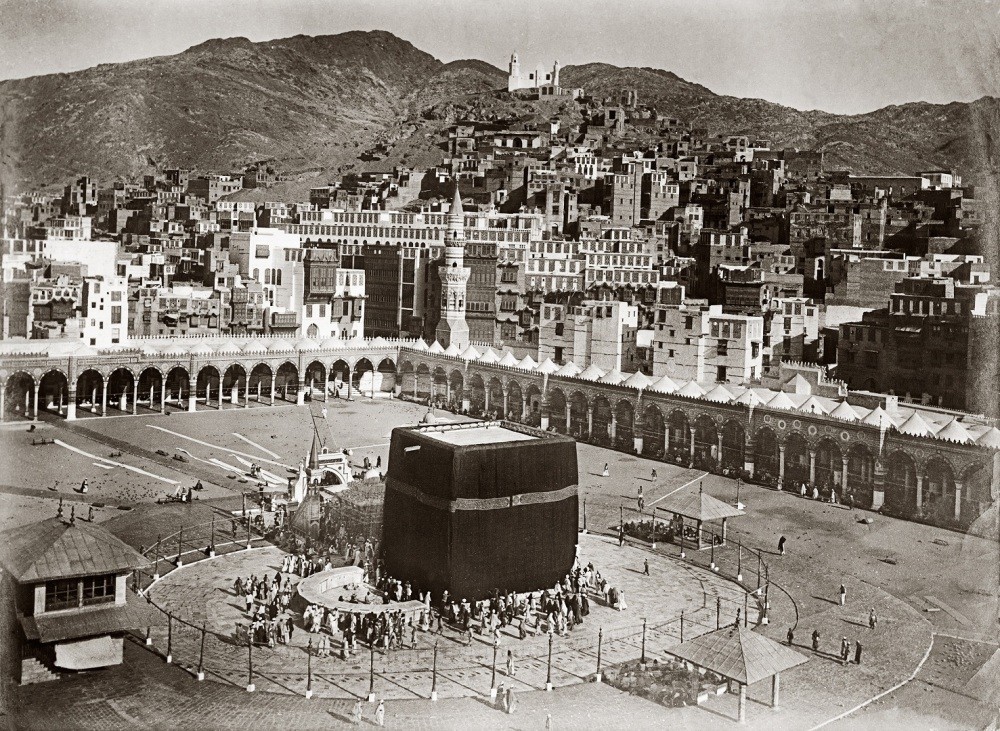As it was last year when, due to the outbreak of the COVID-19 pandemic, Hajj was put in abeyance, it has come to pass, once again, that Hajj rites shall be performed this year by residents of Saudi Arabia only. The necessity to protect pilgrims to the Holy mosques in Kaaba and Madinah led to the declaration couple of days ago by Saudi authorities, that non-Saudis shall not be welcome to the country this year. To all those who had already made their intention to go on hajj this year, rest assured that you have earned your rewards with the Almighty even without stepping on the airplane.
On occasions like this, it is appropriate to learn lessons that Islam would want us to learn. Such can be found in abundance in the life of Prophet Ibrahim (a.s). He was imbued with an uncanny and uncommon intuition and perception very early in life.
- How Jalingo vegetable market offers opportunities to widows, divorcees
- TEF trains 200,000 entrepreneurs
One day he asked his mother: ‘My Mama! Who is my Lord?! She replied: “I am your Lord”. Then he said: “My Mama, who is your Lord!’. His mother responded thus: “Your father is my Lord’! Then he posed yet another question: “if my father is your lord, who is the lord of my father?’ His mother became astounded. Then she said: “Nimrud is the lord of your father’. But the young boy was not satisfied. He therefore said: ‘If Nimrud is the lord of my father, who then is the lord of Nimrud’?
Then he was invited to join the community in idol worship. He pondered the woods and the carvings; carvings hewed by the idol worshippers themselves. He wondered how could humans, endowed with gumption and intuition, worship entities that can neither benefit not harm. Soon the idol worshippers went out as they usually do on their festival days. The young boy was left behind with the idols. He then walked up to them. He gave them food. But the idols could not eat, He gave them water. The idols could not drink water. He tried to talk to them. But the idols could not speak. Fully apprised of their utter helplessness and uselessness, he took an axe and cut them all into pieces except one. He hung the axe on the latter’s head. He thereafter began to await the return of the idolaters.
Wisdom. Discernment. He knew the idol worshippers would, on their return, want to know who broke their gods into pieces. The young boy therefore wanted to awaken them into their reasoning. He wanted to make them aware that long before then, the people were in a state of complete ignorance.
Eventually they returned from their outing. They found their idols as broken pieces of wood. They all chorused: ‘who did this to our gods?’. The young boy quickly stepped forward. He said: “Ask the older idol with the axe if indeed they can talk”. Speech making; discourse of Tawhid. Locales of knowledge and understanding. The logic in the argument was evident, not for all but for the privileged; for those who the Almighty was prepared to guide.
Wisdom. Reason. Understanding. The idol worshippers looked themselves in the eyes. They shot back at the young boy saying: “how could you say that after all you know that the idols cannot talk”.
It turned out it was not His intention to guide them to the right path. Thus they put together a blazing fire and throw the young boy into it. They wanted to set a precedent; they wanted to teach him and others a lesson in obedience to authority even if the latter was in error and in misguidance. Soon the fire began to blaze. They got hold of the young boy and threw him into it. But before he landed in the fire, the Owner of that which burns in all fires instructed the fire to be cold and peaceful for Ibrahim (upon him be peace). It is He who turns adversity into prosperity. It is He who turns pains into gains.
Brethren! bear this in mind- that our life is a test from Him the Almighty. In prosperity, He tests our gratitude. In poverty, He tests our contentment. In difficulties, He tests our perseverance. Through delays in granting our requests, He tests our patience. Through trials, He tests our faith and obedience. May God grant us the spirit to outstay and outlast the temporary challenges that this life may throw at us. aamin.

 Join Daily Trust WhatsApp Community For Quick Access To News and Happenings Around You.
Join Daily Trust WhatsApp Community For Quick Access To News and Happenings Around You.